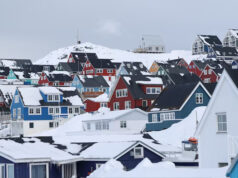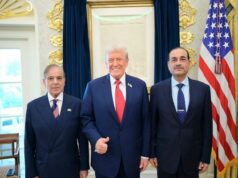Former diplomat and ambassador to Saudi Arabia Talmiz Ahmad, believes Iranian President Ebrahim Raisi’s death was a “tragic accident”.
“If you were to suggest to me that there is any country that stood to benefit from this death, then I would not be able to affirm that Israel or the United States or any of them would have any advantage.”
Ambassador Ahmad was a guest on The Gist. He analysed the impact of President Ebrahim Raisi’s death in a helicopter crash in northern Iran late on Sunday.
While Raisi’s death is a shock, Ahmad pointed to Iran’s “dichotomous” political system with an elected executive and legislature.
“But supreme authority is with the Supreme Leader, a figure of power and influence.
“The fact that he is supported by the Iran Revolutionary Guard Corps … ensures there will be continuity if there is a tragedy.”
He said the fact that the Supreme Leader has made every effort to calm the nation and present a united political front, signals continuity.
The appointment of First Vice President Mohammad Mokhber as interim replacement for Raisi, will ensure the smooth conduct of the funeral arrangements.
The key issue is the succession to Supreme Leader Khameinei. Raisi was in line for the job although it was never confirmed. A contender could be Khameinei’s son Mujtaba.
“I don’t know how much traction he has and whether Mujtaba is now an unchallenged leader. Things will become clearer as time passes.”
The other issue is who will be the candidate for president. Raisi’s election was engineered by Khameinei and it is likely his successor will come from the same hardline background.
It means he will be committed to the values of the Islamic Revolution of 1979 that overthrew the late Shah Reza Pahlavi.
This is not to say the president is powerless, it all depends on his personality.
Former president Ahmadinejad (2005-13) had Khameinei’s backing but later fell out with him. He even got the Revolutionary Guard to rig the election for his second term. So Khameinei is unlikely to want another Ahmadinejad for president.
Does the regime enjoy public support?
“Very difficult to answer,” says Ahmad, “because Iran, though at one level we see it as an authoritarian order, actually has massive protests and demonstrations in public.”
In the last two years, a young lady was killed by security forces because she did not wear the hijab properly. Before that, there were protests because of the economic situation in the country.
But he says Iranians are as hostile to the Americans and to the West as the Supreme Leader is.
“They also share the view that the West does not wish Iran well, that the West is committed to interfering in the domestic politics of Iran … and overturn the Islamic revolution.”
It’s hard to tell how many people want the status quo to end.
But Ahmad believes “That the revolution does not need to be sustained on the basis of such harsh and interventionist security apparatus.”
While the Islamic Revolution has consolidated, the clerical guardians worry over the West’s ability to subvert ordinary people through their wealth and their material capacity.
There is also a fear that if concessions are made today, tomorrow the revolution will be lost.
Thirty eight years in journalism, widely travelled, history buff with a preference for Old Monk Rum. Current interest/focus spans China, Technology and Trade. Recent reads: Steven Colls Directorate S and Alexander Frater's Chasing the Monsoon. Netflix/Prime video junkie. Loves animal videos on Facebook. Reluctant tweeter.




